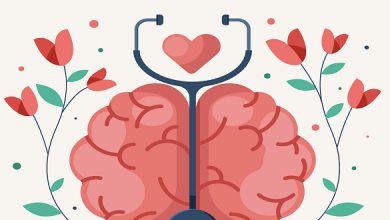Does Caffeine Help or Hinder Sports Performance?

Doping has always been a problem; many athletes have attempted to use drugs and medications to enhance their performance during training and competition, but sports regulatory bodies have outright forbidden this practice. There are several clear explanations for this, including the fact that doping is now synonymous with cheating and that it goes against the core principles of sports, which include equality of opportunity, fairness, commitment, integrity, and health. What is it about caffeine, though? This beverage has a reputation for being an excellent stimulant and for raising vitality levels. This substance is widely utilized in numerous eSports competitions and is not prohibited by the World Anti-Doping Agency. Let us examine the effects of caffeine on the bodies of athletes to determine if it actually improves sports performance or has the opposite effect.
1# The Effects of Caffeine
To put it simply, caffeine is a stimulant that works on the body by preventing the effects of adenosine, a chemical that induces sleep and increases energy throughout the day. People who consume coffee and energy drinks become more alert and energized, and occasionally even more nervous, as evidenced by their faster heartbeat and respiration. This is the reason why a lot of people drink coffee to stay awake, especially in the morning. It can help you stay awake longer than usual and can keep you energized even when you are sleepy.
There is a very basic mechanism underlying how caffeine affects the body. The body typically absorbs this stimulant quickly, and the effects of caffeine manifest five to thirty minutes after consumption; however, they can vary greatly amongst individuals and persist for up to twelve hours. If you’re a bettor who enjoys caffeine and are guessing who is the owner of bet king then check out this link.
Like any other stimulant, caffeine has benefits, but it also has drawbacks, and you will typically pay for all of these benefits in terms of your health. Check out the differences between the short- and long-term effects of caffeine on the body.
| Immediate effects | Long-term effects |
| Having greater energy, alertness, and activity | Having trouble falling asleep |
| Accelerated breathing and heart rate | If consistently consumed, anxiety and depression |
| An increase in the stomach acid produced | Heart-related problems |
| Having more frequent urination needs | Addiction |
| Increased body temperature | Agitation |
2# The Promotion of Energy Drinks in eSports
Many sports fans, and eSports fans in particular, are aware that energy drink companies frequently support these sports; these companies sponsor the majority of championships and tournaments and have a close relationship with the world of cyber sports.
The primary reason for this is that professional players place a high value on energy drinks because they help them perform better and stay energized for extended periods of time. Professional gamers usually play computer games that require excellent mental and cognitive functioning. Energy drinks contain caffeine, which helps players focus better and feel less tired, both of which improve performance.
Recent research, however, indicates that this is merely a trick; gamers who drink energy drinks the most are known to perform worse than those who don’t. It is true that energy drinks can enhance the nervous system’s overall function and the brain’s capacity to function. However, this is dependent on how much caffeine players take in while playing, as most of the time they consume too much, which negatively impacts their performance. An excessive amount of caffeine can cause jitters, restlessness, an elevated heart rate, and occasionally even nausea. Gamers typically suffer greatly from this anxiety, which lowers their performance.
3# Caffeine and Sports
Because of how widespread and significant the doping issue has become, athletes who use stimulants are frequently viewed as cheaters. Caffeine is officially permitted prior to sporting events and is not prohibited; nonetheless, it is not thought of as doping. Although it is permitted during competitions, athletes are only permitted to consume up to 15 micrograms of caffeine per milliliter of urine. Since caffeine is not prohibited, the real question here is not whether it is a doping agent but rather whether it can improve athletic performance. It is a stimulant, right?
Numerous studies have demonstrated the positive effects of caffeine on athletic performance, exercise, and other related activities. But skilled athletes appear to gain the most from it, while less skilled athletes appear to gain little from this stimulant. Caffeine appears to have completely opposite effects on less experienced athletes—in fact, it may even be detrimental to them. The recommended dosage of caffeine varies based on body weight, but in general, to reap the benefits of the stimulant, 200–400 mg should be taken 30–60 minutes prior to working out.
But is caffeine detrimental to athletic performance, or is it the opposite? The answer, of course, is rather obvious: it all depends on how much caffeine is ingested prior to working out or exercising. On the one hand, because it is inexpensive and generally safe in comparison to other stimulants, caffeine is regarded as one of the most effective exercise supplements available. However, caffeine may weaken the natural physiological processes that support increased cardiac blood flow during exercise. In addition, consuming excessive amounts of caffeine over time can result in numerous health problems.
Conclusion
We can conclude this article by saying that, while caffeine is a great legal stimulant for all types of athletes, how much of it you take will determine how much of a performance boost it gives you.
Caffeine overuse can have serious negative effects on the body, particularly on an athlete’s health, because it can negatively impact the bladder and heart, among other organs.
While excessive caffeine use can have very unpleasant consequences and negatively impact not only your athletic performance but also your general state of being, moderation in caffeine consumption can enhance performance and keep you alert and focused.





